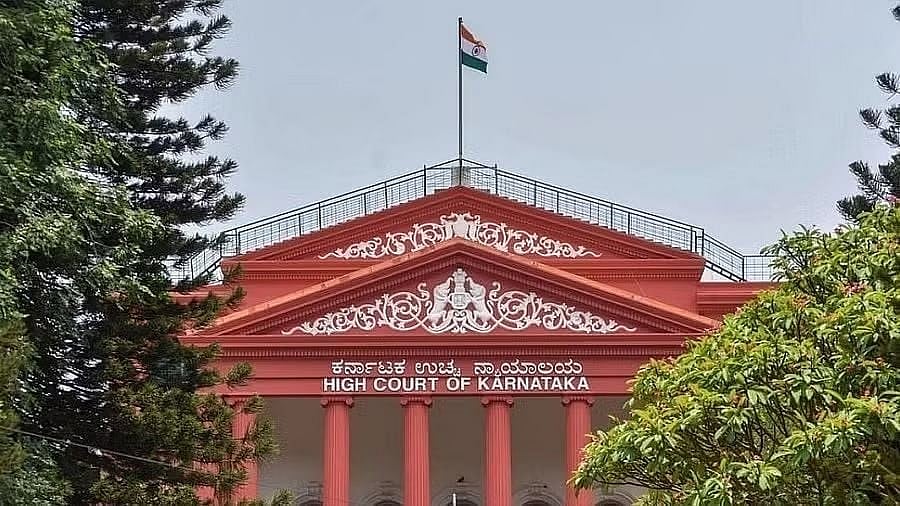
The Karnataka High Court
Credit: DH File Photo
Bengaluru: The Karnataka High Court has refused to interdict the proceedings in a case of reverse trap involving a Special Land Acquisition Officer-II of the Karnataka Industrial Areas Development Board (KIADB).
“The central twist in a reverse trap would be, as to why, the public servant returns the money,” Justice M Nagaprasanna said while dismissing the petition filed by A B Vijaya Kumar.
The petitioner, at present working as Joint Director of Municipal Administration, had moved the high court challenging the proceedings under sections 7 (a) and 7A of the Prevention of Corruption (PC) Act.
The complaint pertains to 2022 and the complainant Bhagath Singh Arun, alleged that Vijaya Kumar had demanded Rs 5 lakh bribe for issuing the NOC for the purpose of RTC in respect of Shri Dinne Duggalamma Temple situated in Laggere village.
After negotiations, the officer scaled it down to Rs 2.5 lakh which was paid through Sommanna, a relative of Vijaya Kumar. When the work was not done even after paying the bribe, the complainant filed a complaint before the Special Deputy Commissioner of the KIADB.
The petitioner issued the NOC and started pressuring the complainant to withdraw the complaint before his superior. The complainant filed a complaint with the Lokayukta and the officer was caught while returning Rs 3 lakh to the complainant.
Challenging the proceedings, Vijaya Kumar contended that there is no proof of any kind that he demanded illegal gratification to take undue advantage; no proof of acceptance by him as some other person had received the amount.
In the complaint, it is alleged that Rs 2.5 lakh was given; however, in the trap mahazar, it indicates that the complainant himself demanded the return of Rs 3 lakh.
Hence, section 7 of the PC Act does not cover a situation of the return of undue advantage taken by abusing the official position, the advocate for the petitioner said.
The court said that in a reverse trap scenario, which forms the fulcrum of the list, the public servant allegedly returns money previously received as illegal gratification.
“These facts , when projected before the Court, require a complex evidentiary matrix. The issues that arise in cases of reverse trap are distinct from a traditional trap. The central twist in a reverse trap would be why the public servant returns the money. Therefore, all these factors are in the realm of seriously disputed questions of fact, requiring evidence to demonstrate the innocence of a public servant. The matter is still at the stage of investigation, and investigation in such cases is a must,” Justice Nagaprasanna said.
The court further said, “The submission that Section 7 of the Act does not cover a situation of the return of undue advantage is noted only to be rejected, as the returning of undue advantage precedes the demand of undue advantage, acceptance of the said advantage, and returning of it all happened in the peculiar facts of this case, which can be discerned from the complaint, the pre-trap mahazar, and the trap mahazar. There is no warrant for this Court to interdict the proceedings and hold the petitioner innocent, notwithstanding the link in the chain of events goaded against the petitioner.”